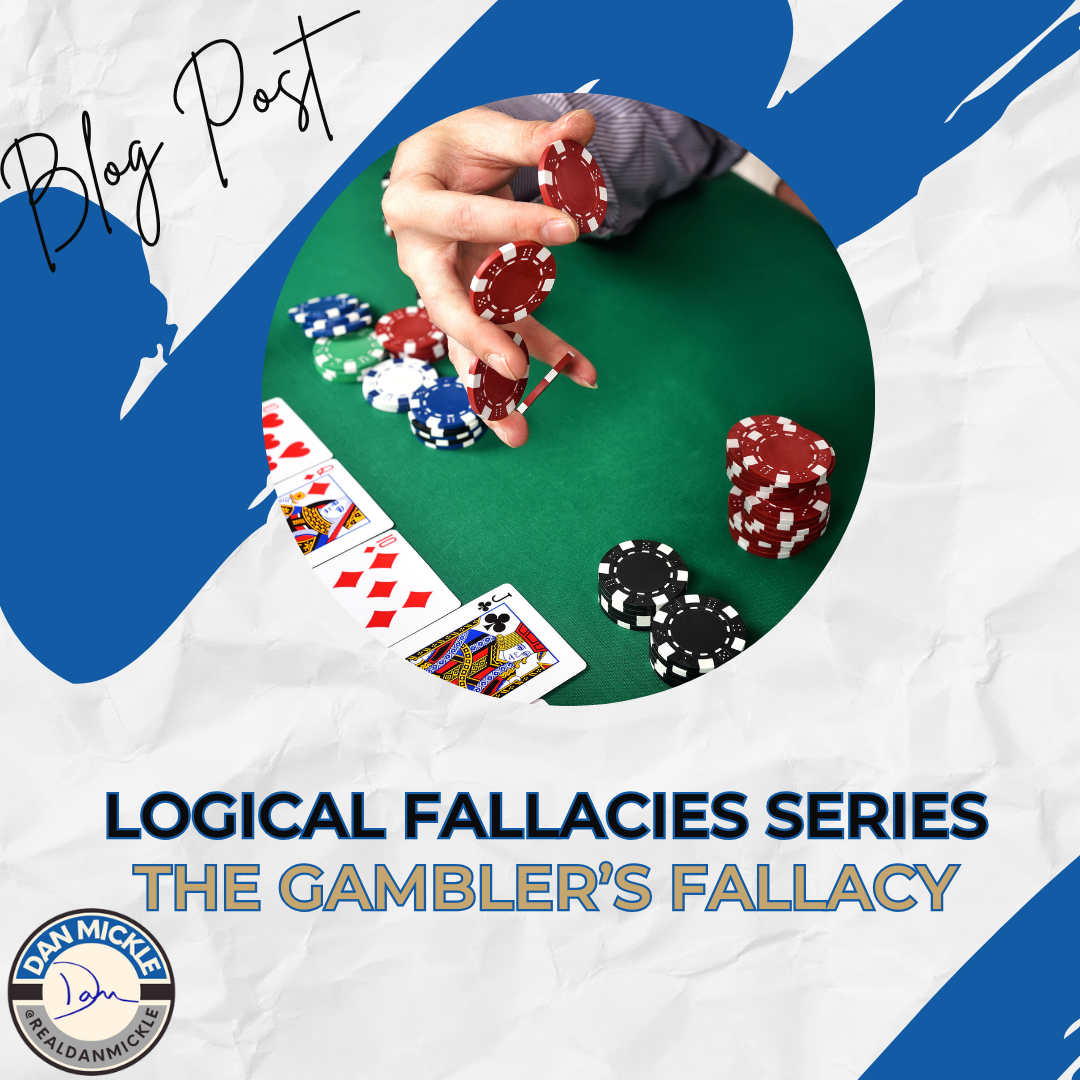The Gambler’s Fallacy is on tap today. Welcome back to our series on logical fallacies! If you’ve missed any, don’t worry, there’s still plenty more to come, so stay tuned! If you’re just jumping in, these posts help you recognize and understand logical fallacies, those flaws in reasoning that often creep into debates and discussions, especially in sports. Whether you’re a coach, a parent, or an athlete, this series will improve the quality of your decision-making and communications.
If you missed our last post, where we tackled the Slippery Slope in youth sports, you can catch up here. Today, we’re diving into the Gambler’s Fallacy in Youth Sports. This is a fallacy that many coaches, athletes, and parents unknowingly subscribe to, especially when patterns or “luck” seem to dictate outcomes. Let’s break it down and see how to spot it.
The Gambler’s Fallacy is all about mistaken beliefs in patterns. It occurs when someone believes that independent events (like free throws, goals, or games) must be balanced out because of perceived “patterns.” For instance, a player may think they’re “due” for a hit after several misses, or that a losing streak will automatically end with a win.
The fallacy comes from the mistaken belief that the outcomes of previous events influence future ones. The reality is that each event, whether it’s a game, a play, or a shot, is independent. Past outcomes do not dictate future ones.
How the Gambler’s Fallacy Appears
- Overestimating or Underestimating Chances:
A coach or parent might say, “They’ve lost three games in a row, so they’re definitely going to win the next one!” This is the Gambler’s Fallacy because the outcome of past games doesn’t influence the next game. Each event stands alone; one loss doesn’t mean a win is “due.” - Risky Behavior in Competition:
A player may take an unnecessary risk, thinking they “have to” make the next shot because they missed several times in a row. The belief that they’re “due” for a successful attempt is a perfect example of the Gambler’s Fallacy. The outcome of previous shots doesn’t increase the chances of the next one going in. - Belief in “Hot Streaks” or “Cold Streaks”:
Players or coaches may believe that after a few successful passes, the player is “on a roll,” if they’ve missed several shots, the next one is “due” to go in. This is a version of the Gambler’s Fallacy, believing that one outcome influences another when they’re independent. - Overconfidence or Desperation:
A coach might think, “We’ve been playing poorly, so it’s only a matter of time before we turn things around,” or a player might feel, “After missing a few shots, I’m bound to make the next one.” These are examples of the Gambler’s Fallacy because they’re based on the false assumption that the future outcome is tied to previous events.
How to Fix the Gambler’s Fallacy
- Focus on the Process, Not the Outcome:
Instead of worrying about the past or the idea that something is “due,” athletes should focus on improving their skills and strategies. Whether it’s making a shot or winning a game, the key is preparation, not superstition. - Promote Mental Flexibility:
Teach athletes that each shot, pass, or play is unique. The fact that one shot missed doesn’t mean the next is “bound to go in.” Every moment should be approached with a fresh mindset. - Encourage Rational Thinking and Reflection:
Encourage athletes to reflect on what’s happening in the moment. A missed shot isn’t a sign of an inevitable future miss; it’s simply a part of the game. Look for improvements and focus on the process of getting better, not on breaking patterns. - Model Rational Decision-Making:
Coaches and parents should model rational thinking by avoiding the Gambler’s Fallacy themselves. When someone mentions a pattern of events or streaks, remind them that the next event is independent of the last. It’s a chance to make a new decision, not a chance to “correct” a supposed imbalance.
The Gambler’s Fallacy can cloud judgment, leading to poor decisions based on superstition rather than skill. By focusing on process over outcome and teaching athletes to embrace the idea that each event is independent, we can prevent this fallacy from influencing performance.
Stay tuned for our next post on the No True Scotsman Fallacy and its impact on decision-making in youth sports. Remember, good decisions come from a clear mind focused on the present, not past outcomes.


